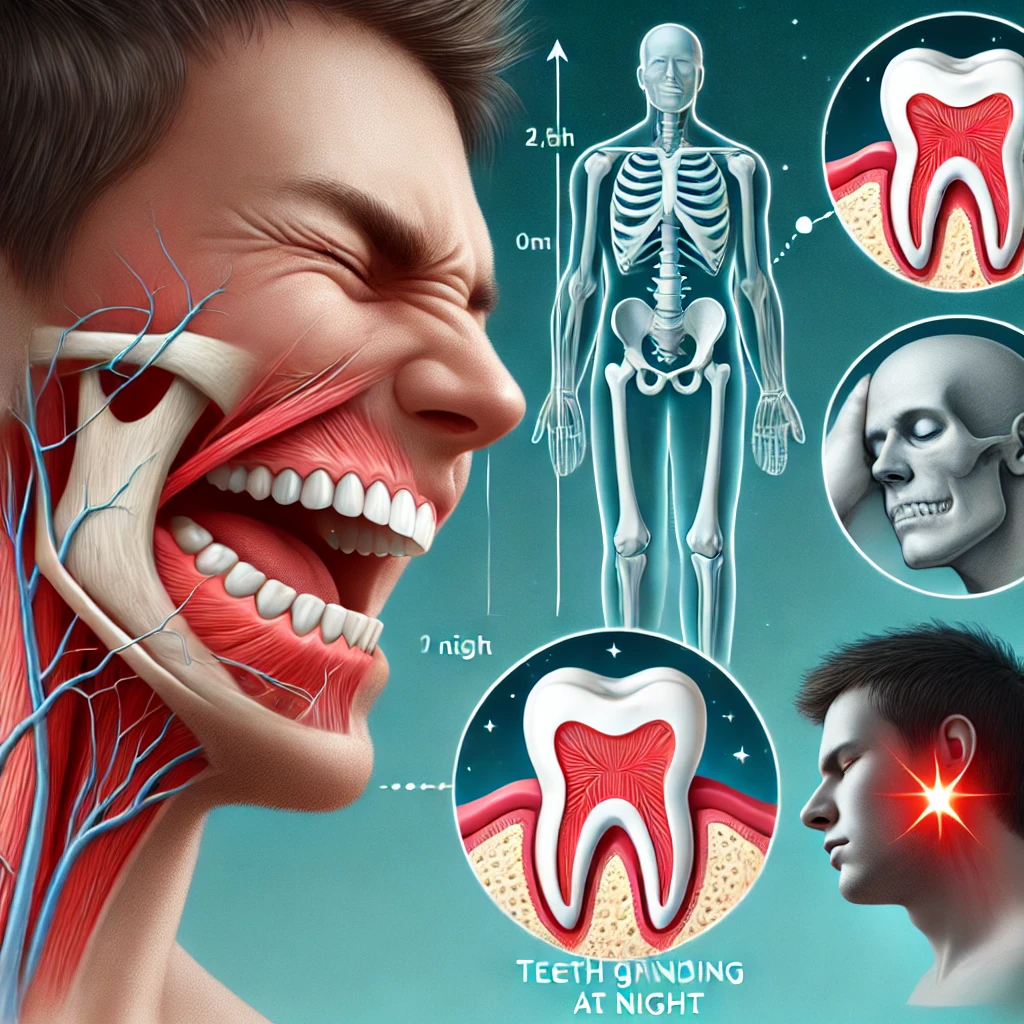Is bruxism linked to neurophysiology? This is the question that the following study has attempted to answer , compiling different investigations to determine whether this oral condition is related to changes in neural pathways.
What is bruxism?
It is defined as the action of clenching, hitting or grinding the teeth . It is considered a parafunctional movement, that is, it has no useful function and is performed unconsciously.
Due to this unconscious movement, 30-60% of the force we normally use to chew food is used. As it lasts over time, it ends up causing discomfort in the mouth, when squeezing it, for example while we sleep.

What are the causes of bruxism?
In reality, it has not yet been determined what the cause of bruxism may be, so there is only guesswork.
According to the theories, we can divide the factors into:
- Peripheral: Also known as morphological. They refer to misaligned teeth or a bad dental occlusion . It is not the most common cause of bruxism, but it can cause teeth to clash and joint pain.
- Central factors: These are those that are related to neuronal activity. On the one hand, there are the pathophysiological ones , which indicate that bruxism occurs during hours of sleep due to an alteration in neuronal activity. On the other hand, there are psychological factors , indicating that bruxism can be caused by stress, anxiety or changes in mood.
Bruxism also appears due to other diseases
During several investigations it has been detected that many people suffer from bruxism due to various diseases, such as:
- Alzheimer
- Tourrette syndrome
- Rett Syndrome
- Parkinson’s
This is not always the case, and there is no way to link this involuntary jaw movement with disease. But this would serve as a small test that certain neuronal changes could cause bruxism.
What does the study say?
The objective of the study was to review the different clinical studies that evaluate neuroplasticity changes induced by, or associated with, bruxism.
After searching and investigating five databases, clinical studies were included that used neurophysiological techniques to assess neuroplasticity changes in healthy participants before and after clenching, comparing the results between bruxists and non-bruxists.
A total of 151 articles were identified ; Eight of these studies evaluated bruxists and non-bruxists, of which five detected differences in brain activity , while the other three found no difference.
Even so, all studies suggest differences in central excitability between bruxists and non-bruxists . Although the meta-analysis did not reveal statistically significant differences, bruxism appears to be associated with distinct differences in the neural pathways responsible for jaw muscle control. Unfortunately, no definitive conclusion could be reached to prove the theory that bruxism may be related to neurophysiology.

We do not always notice the symptoms of bruxism
Most people do not know that they suffer from bruxism, because it is an act that we perform involuntarily and they do not realize it. In fact, if we have the habit , we must try to correct it and avoid it.
Let us remember that it is an involuntary act, which we can do, for example, while we are sleeping at night or while we are working and we do not realize it. In itself, it is not a dangerous disorder, but it can cause permanent dental damage .
If in the morning you notice pain in your jaw, or throughout the day you realize that you clench your teeth too much when your mouth is closed, you should go to the dentist as soon as possible to check the condition of your teeth to avoid possible injuries such as erosions, cracks or that they break.